Pacific Guidelines for the Development of National Quality Frameworks for ECCE
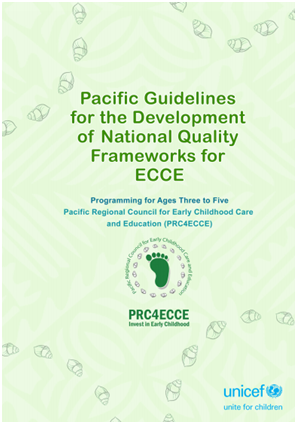
test

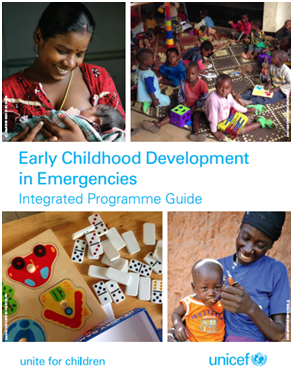
The goal of the integrated programme guide for ECD in emergencies is to guide the humanitarian community in designing a response that takes into account the needs of young children. This programme guide can be used in times of emergency preparedness, response, and early recovery, and for building resilience. It is designed for use by UNICEF Programme Officers as well as for representatives from other UN agencies, NGOs and government divisions responsible for designing, implementing, monitoring and evaluating ECD interventions.
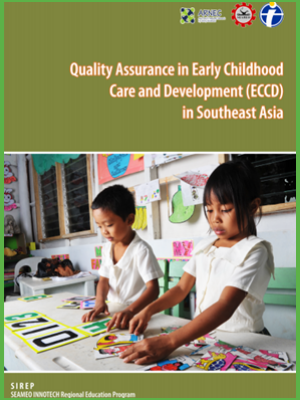
SEAMEO INNOTECH has prioritized Early Childhood Care and Development (ECCD) in Southeast Asia as one of its programmatic areas to support universalization of ECCD in the region. As part of its research agenda, the Center has completed an investigation of the ECCD quality assurancepolicies, mechanisms and models being implemented by SEAMEO member countries. Out of the 11 SEAMEO member countries, ten participated in the study. Data collected from these countries were analyzed to generate a regional ECCD quality assurance profile. SEAMEO INNOTECH is now pleased to share these findings in this latest publication.
The current publication discusses the current and depth of these ECCD policies, mechanisms and models as well as issues and challenges that still need to be addressed by SEAMEO member countries.
One major finding of the study shows that although there are ECCD policies and standards already in place in most SEAMEO member states, there is an absence of explicit ECCD quality assurance frameworks that could serve as an anchor for a holistic ECCD program. Because of this absence, most ECCD policies and standards in Southeast Asia are limited to qualifications of pre-school heads and teachers, early learning curricula, and requirements of physical facilities.
It is hoped that this publication will support SEAMEO member countries in their efforts to act on strengthening their ECCD policies and standards and formulating a comprehensive and holistic ECCD quality assurance framework that would consider the varied needs of pre-school children.
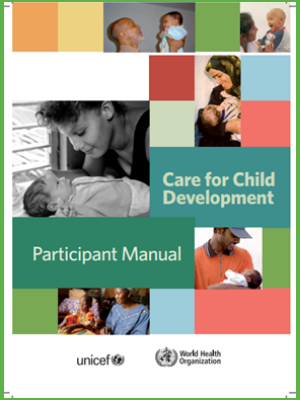
Children need good care. Their survival through childhood depends on adults who notice when they are hungry or sick, and are able to meet their needs.
Good care also means keeping children safe from harm, and giving them love, attention, and many opportunities to learn. From birth, children build ties to special adults and look to them to learn important skills. What children learn from these relationships helps to prepare them for life.
This course on Counsel the Family on Care for Child Development supports the efforts of families and others in your community who are trying to raise healthy, happy children. They may live in poverty and face many other challenges. The children they raise may be their own. Or they may have accepted the task of raising other children in their family or community. You can help them be better able to care for their children, even under difficult conditions.
Course Objectives
At the end of the course on Counsel the Family on Care for Development, you will be able to:
As you learn these tasks, you will focus on observing caregivers with their children. Using good communication skills, you will counsel the family.
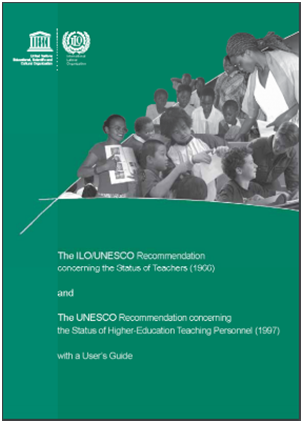
The ILO/UNESCO Recommendation concerning the Status of Teachers was adopted on 5 October 1966 at a special intergovernmental conference convened by UNESCO in Paris in cooperation with the ILO. It sets forth the rights and responsibilities of teachers, and international standards for their initial preparation and further education, recruitment, employment, teaching and learning conditions. It also contains many recommendations for teachers’ participation in educational decisions through consultation and negotiation with educational authorities. Since its adoption, the Recommendation has been considered an important set of guidelines to promote teachers’ status in the interest of quality education.
The ILO/UNESCO Recommendation concerning the Education of Teachers (1966) is accompanied by the UNESCO Recommendations concerning the Status of Higher Education Teaching Personnel, WHICH was adopted by the General Conference of UNESCO in 1997, following years of preparatory work between UNESCO and the ILO. This standard is a set of recommended practices covering all high ereducation teaching personnel. It is designed to complement the 1966 Recommendation, and is promoted and its implementation monitored by UNESCO in cooperation with the ILO, notably through the Joint ILO/ UNESCO Committee of Experts on the Application of the Recommendations concerning Teaching Personnel (CEART).
2008
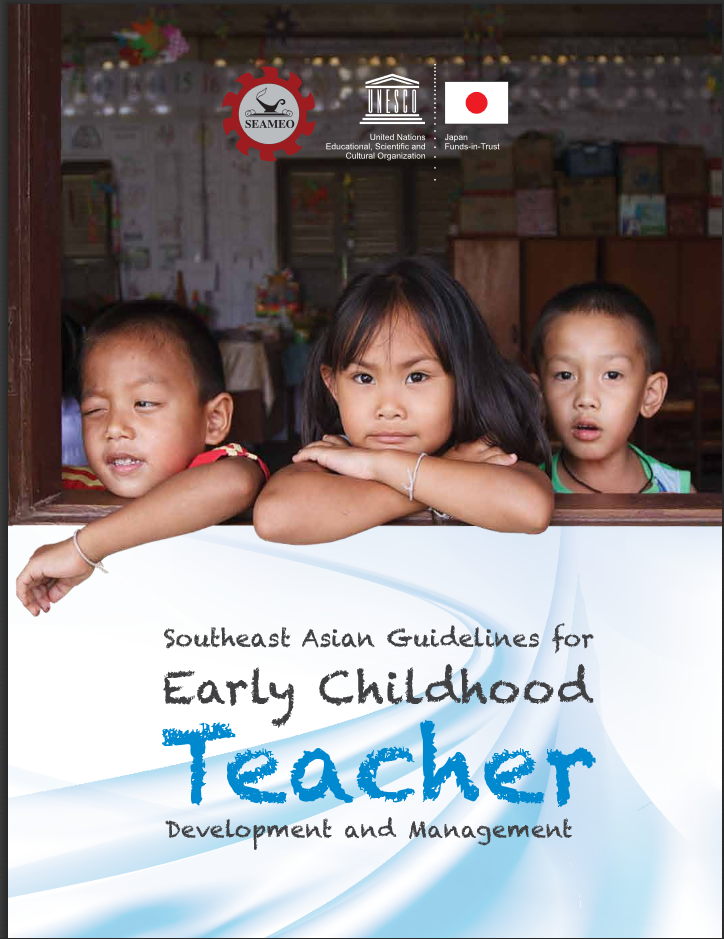
Southeast Asian Guidelines for Early Childhood Teacher Development and Management focuses on recommendations based on both regional and international experiences concerning how to best manage and further enhance the quality of early childhood teachers in terms of the following aspects:
2016
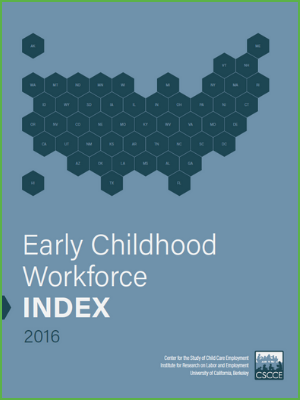
The Early Childhood Workforce Index represents the first effort to establish a baseline description of early childhood employment conditions and policies in every state and to track progress on a state-by-state basis to improve early childhood jobs. Providing states with periodic appraisals of their efforts, based on measurable status and policy indicators, is aimed at encouraging states to step up their efforts to address these persistent workforce challenges and at supporting related advocacy efforts. It is our hope that expanded and consistent focus on early childhood jobs will, in turn, generate refined strategies and encourage the incubation and testing of sustainable policies to attend to compensation and other issues that have gone largely unaddressed.
Authors: Year of Publication:2016
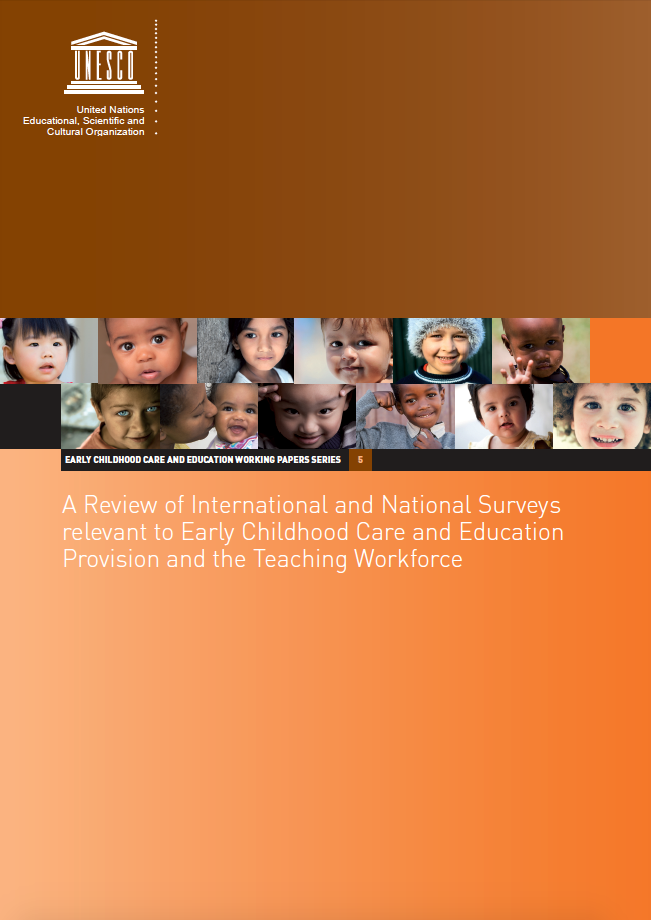
This literature review of national and international surveys of early childhood care and education (ECCE) provision and the teaching workforce was commissioned by UNESCO to inform the development of survey instrument and methodology for the Survey of Teachers in Pre-Primary Education (STEPP) project (May 2015–December 2017). The key tasks set by UNESCO were to:
The main purpose of the surveys was to make visible information about the teacher workforce in order to analyse and compare policy, to highlight issues that might be supported by policy and practice and to make plans within countries to enhance the teacher workforce. Survey information can also generate theoretical understanding by enabling relationships between variables to be examined.
The report presents lessons learnt from the implementation of the surveys as well as recommendations for future research.
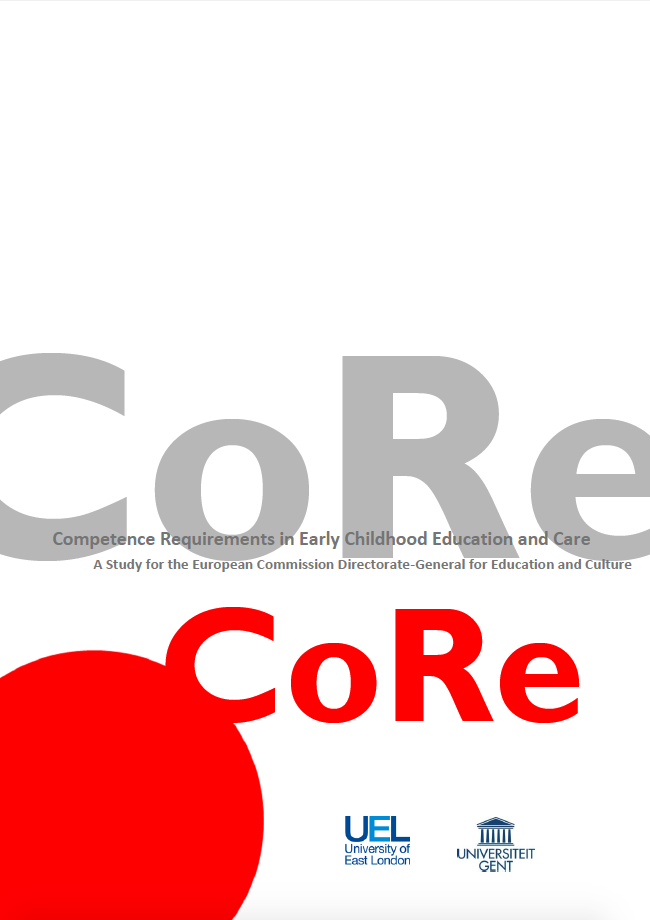
There is a broad consensus among researchers, practitioners, and policymakers that the quality of early childhood services – and ultimately the outcomes for children and families – depends on well-educated, experienced and ‘competent’ staff. But what exactly makes a competent early childhood practitioner? How can competence be understood, and its development supported, in the highly complex and demanding field of working professionally with young children, families and communities? What approaches do different countries take, and what lessons can be learnt from practices developed by practitioners, training institutions and policymakers across Europe? This report presents the findings of a European research project jointly conducted by the University of East London (UEL) and the University of Ghent (UGent). The ‘study on competence requirements in early childhood education and care’ (CoRe) explored conceptualisations of ‘competence’ and professionalism in early childhood practice, and identified systemic conditions for developing, supporting and maintaining competence in all layers of the early childhood system. In the light of the research findings, and intensive consultation with key stakeholders in ECEC in Europe, CoRe has developed policy recommendations, which are also part of this report.
The aim of CoRe is to provide policy-relevant information, advice and case studies with regard to the competences required for the ECEC workforce and how to support competence development from a systemic perspective. In order to achieve its aims, CoRe has conducted original research, reviewed previous work and international literature, and consulted with experts in the field over a period of 15 months. In this report, we present the findings of the different but interrelated strands of this process which underpin the policy recommendations regarding systemic competence development and professionalisation in early childhood education and care in Europe. By providing informed views on the questions at stake we hope to initiate discussion, to provoke new thinking, and to encourage new questions.
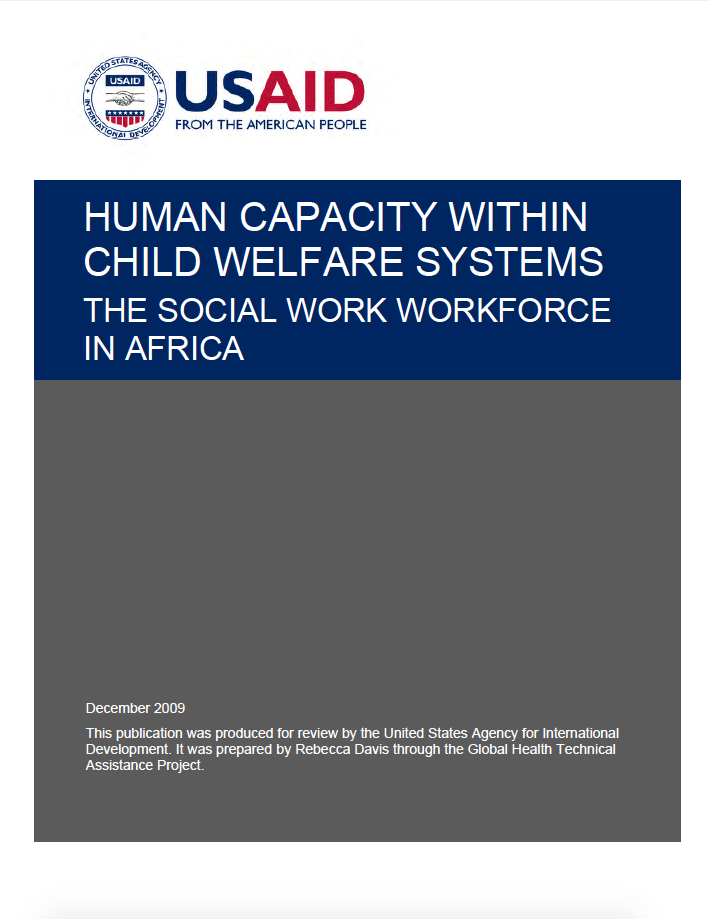
The aim of this study is to inform stakeholders about the opportunities for and constraints on building the social work workforce within the child welfare sector in Africa. Based on principles and practices of family-centered, community-based social work practice for orphans and vulnerable children (OVC), this report analyzes the capacity of the child welfare workforce and the education and training of social workers in Africa within the framework of African child welfare policies. Opportunities and constraints of the child welfare workforce in Africa are identified based on the a four-pillar framework that includes: 1) Policy and Legal Framework; 2) Child Welfare Service Models and the Practice Environment; 3) Education and Training; and 4) Outcomes and Performance Measures. One observation that underscores all the other observations and findings is that there exists a historically rich social work profession in Africa that was built on a community ideology and focused on meeting the needs of vulnerable children and families, especially those living in poverty. The loss of community in social work methods, the lack of indigenous knowledge and the underdevelopment of the profession, and the need to build the capacity of child welfare and social work education systems in Africa are consistent themes in this analysis. Results highlight that strengthening child welfare systems necessitates an approach that connects laws, policies, the child welfare practice environment, workforce capacity (including education and training), and defined outcome measures and data collection systems.